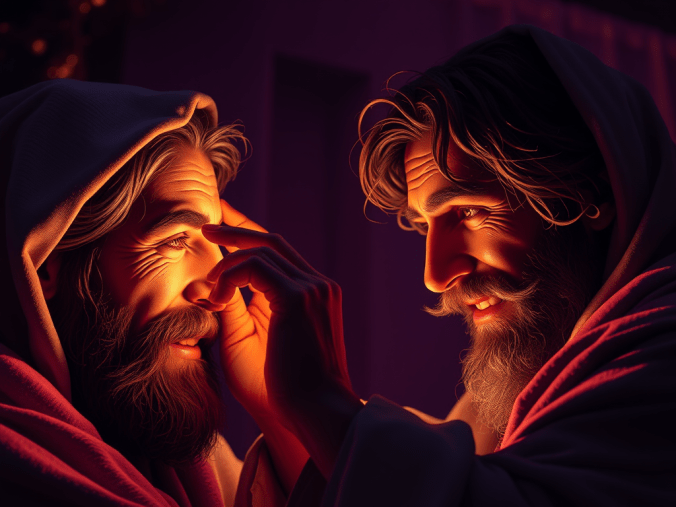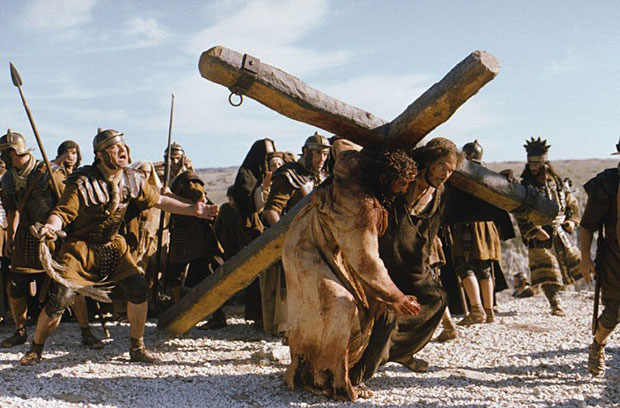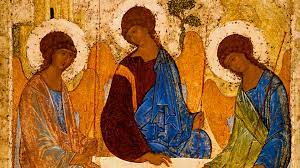Feast of the Holy Family (Year A)
December 28, 2025
Sacred Heart, EGF
Saturday – 5 PM; Sunday – 8 AM, 10 AM, 5 PM
We celebrate today the Feast of the Holy Family:
the family of Jesus, Mary, and Joseph.
the family that God chose for his Son when he would take on our human nature.
To be human is to be born into a family:
a connection of persons
a web of relationships
a Lineage.
We call them the Holy Family because they are Jesus’ family.
Jesus: the son of God, adopted as the son of Joseph who claimed him when he named him.
Mary: the mother of Jesus, given the grace of the Immaculate Conception so she could be the Mother of Christ
Joseph: no superhuman, prevenient grace, but nonetheless a virtuous man. There are two characteristics of St. Joseph worth mentioning today:
- He listened for God’s voice and was open to it.
- He obeyed it promptly when he heard it.
Scripture recounts 4 dreams of St. Joseph. The last three of them are all in today’s gospel passage:
- “Do not be afraid to take Mary into your home…”
- “Flee to Egypt…”
- “Return to Israel…”
- “Settle in Galilee…”
In all of them, Joseph listened for God’s voice and was open to it, and he promptly obeyed it when he heard it.
We call them the Holy Family because they are Jesus’ family,
but what really makes them “holy” (set apart),
is that they have Jesus at the center.
In that way, the Holy Family is the model for our families.
Our families, too, are called to be holy families, set apart.
God put the family at the center of his plan for humanity.
God blesses family life.
Adam and Eve: “God blessed them and said, ‘be fertile and multiply’…”
Children are the crowning joy of marriage.
Last summer we had a lot of weddings.
Lately, many of them having been coming up to me and saying, “We have big news…”
Their faces are radiant with joy.
Their families are radiant with joy.
We rejoice with them as a family forms!
We, too, are born into families:
people with whom we will journey closely and for a long time – our lifetimes.
God entrusts us to a family.
God entrusts us with a family.
Family is where we get our start in life.
The people charged with caring for us when we cannot yet care for ourselves.
The people who will be charged with caring for us when we can one day no longer care for ourselves.
Some we choose, like our spouses or adopted children.
Some we do not, like our parents or our biological children.
They are a gift to us.
Family is where we learn fundamental human values:
Obedience.
Working together.
Fighting and Forgiving.
To contribute to the common good, learned through doing my part in household chores.
The Virtues: honesty, sharing.
I learn that I am not the center of the universe!
How to pray.
How to face suffering together.
Family life is the path to holiness.
It teaches love of God and love of neighbor.
It is the training ground to become a saint.
Many of us come from holy families. A holy family has Jesus at the center.
Some of us come from families that often didn’t treat us or others as sacred.
Perhaps members of our families failed in their responsibility to care for us.
Perhaps we failed in our responsibility to them.
Perhaps a fresh start is possible.
Perhaps it is too late for that.
If that resonates with you, a good question to take to prayer is this one:
”Jesus, where were you in the pain and in the darkness?”
Ask that question with faith and I believe that Jesus will show you right where he was.
It is where he always is:
At the center, with you.
He was present with you.
He suffered with you.
He redeemed you.
By taking your humanity to himself, he offers you his divinity – divine grace –
to forgive what seems impossible to forgive so that it does not consume you…
to find healing where healing does not seem possible…
to experience, as the priestly blessing states:
“the peace of Christ, which surpasses all understanding (Phil 4:7).
It surpasses all understanding because Christ is present with me in the darkness.
…
Brothers and Sisters,
On this great feast,
we thank God for the gift of the Holy Family of Jesus, Mary, and Joseph.
We also give thanks that, because of our baptism,
God’s family has become our family.
We seek their intercession for our families,
that our families may also be holy,
with Jesus at the center.
We also thank God for our families:
those entrusted to us as companions for the journey.
We recommit ourselves to being devoted to the members of our family,
whom we can easily take for granted because they are always so near to us.
In closing, I share with you “A Family Prayer”:
God made us a family.
We need one another.
We love one another.
We forgive one another.
We work together.
We play together.
We worship together.
Together we grow in Christ.
Together we love all people.
Together we serve our God.
Together we hope for Heaven.
These are our hopes and ideals.
Help us to attain them, O God, through Jesus Christ our Lord.
Amen.




